EU Condemns Iran's Execution Of Juvenile Offender 'In Strongest Terms'
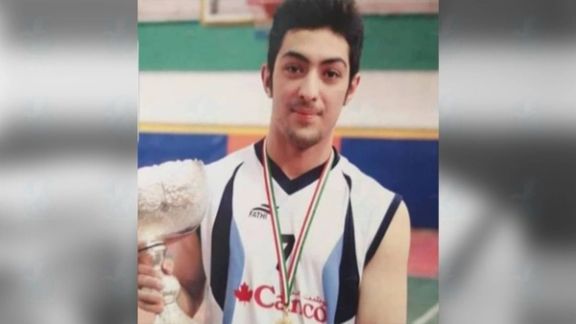
The European Union has strongly condemned the execution of a 25-year-old man in Iran on Wednesday convicted of murder that he committed when he was a juvenile.

The European Union has strongly condemned the execution of a 25-year-old man in Iran on Wednesday convicted of murder that he committed when he was a juvenile.
A statement issued by the office of EU’s foreign policy chief Josep Borrell said, “The European Union condemns this execution in the strongest terms.”
Arman Abdolali was sentenced to death for the killing of his girlfriend Ghazale Shaker in 2014, but his execution had been postponed on several occasions.
The EU has in the past condemned the execution of other juvenile offenders in Iran and also the hanging of Rouhollah Zam, a dissident journalist who was abducted by Iranian intelligence in 2019 and hanged last year.
The statements went on to say that the EU “recalls yet again that death sentences for crimes committed by persons below the age of 18 are contrary to international obligations under the International Covenant for Civil and Political Rights and the Convention on the Rights of the Child.”
Human rights organizations and United Nations experts have repeatedly called on Iran to end executions, specially those of juvenile offenders. For many years Iran has had the second highest rate of carrying out the death penalty in the world, after China.
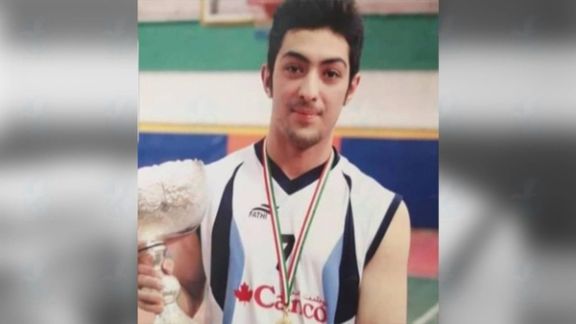
A man found guilty of murdering his teenage girlfriend when he was a juvenile was hanged in Iran on Wednesday, the country’s Judiciary has announced.
Arman Abdolali, who was 25 at the time of his execution was sentenced to death for the killing of Ghazale Shaker in 2014, but his execution had been postponed on several occasions.
Human rights organizations had repeatedly appealed for the death sentence to be cancelled because of Abdolali’s age at the time of the crime, but Iran’s Sharia-based law recognizes adulthood to be when a person turns adolescent.
Also, according to Islamic law the family of the victim has the last say in carrying out the sentence. If the family forgives the offender, the death penalty cannot be carried out. In this case Shaker’s family did not agree to pardoning Abdolali.
The Iran Human Rights Organization reported earlier this year that the Islamic Republic is the only government in the world that continues to execute people who committed a murder before the age of 18.
Germany's human rights commissioner, Baerbel Kofler, had also appealed to Iran to cancel the execution calling it "unacceptable breach of international law."
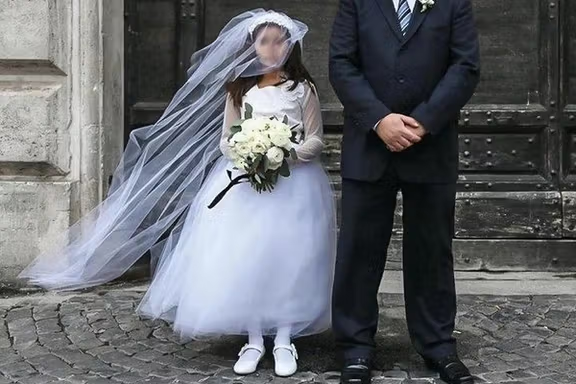
Child marriage has risen over 30 percent in Iran this year from the same period last year, with 9,750 girls aged 10-14 officially wed in a three-month period.
Figures published by Iran Statistical Center (ISC) relating to the first three months of the Iranian calendar year (March 21-June 20 2021), are the highest for child marriages recorded in a single quarter.
The Iranian Student News Agency (ISNA) in a detailed article Monday said that the numbers published by ISC reflected only registered marriages and not unregistered ones, which are common in rural areas.
Over 54,500 teenage girls above 14 also were officially married. Marriages of boys under 18 − considered ‘underage’ internationally − were far fewer, with only six cases registered for boys under 15 and 6,500 for males between 15-19.
For years the issue of underage marriage has been debated in Iran, with many clerics and religious politicians defending marriages of girls under 15. Proposed legislation to forbid marriage in for girls under 14 has been pursued unsuccessfully even in relatively more reform-minded parliaments.
Fathers are required in law to agree to the marriage of daughters younger than 13, while a religious court must also certify that the girl is ready physically and mentally, and that she agrees to the marriage. ISNA claimed that judges often seek only the father’s consent and disregard the other requirements.
One major reason for the rise in underage marriages is the current economic crisis where poor families struggling to take care of children see early marriage as a better option. There is a government cash grant of around $400 for marrying couples, which acts as an additional incentive.
There are also many reports from officials and in the media of parents receive money for agreeing to wed underage girls, often to far older men. The vice-president responsible for women’s affairs, Ansiyeh Khazali, who does not oppose all underage marriage, recently said that money played a big role.
The wide gender imbalance − with 9,750 under-14 girls marrying as against only six boys under 15 and 6,500 males aged 15-19 − in the SCI figures suggests many child brides went to men in at least their 20s.
Reports in Iranian media have indicated that there are growing cases of “child divorce” and children giving birth. ISC figures from the same three-month period showed 293 babies born to girls under 15, with two ten-year-old and seven 11-year-old mothers. In total, 747 babies were born to mothers aged 10-14 in the first six months of the year.
Although child marriage in Iran is less common than in Africa and some parts of Asia, human rights groups have criticized the practice and highlighted individual cases.
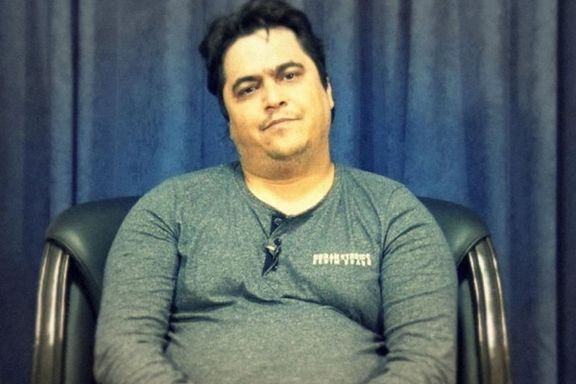
The father of an Iranian journalist who was abducted in Iraq in 2019, taken to Iran and hanged has accused former president Hassan Rouhani and another top official of playing the main role in his death.
Mohammad Ali Zam, a cleric and father of Ruhollah Zam wrote in a post on Instagram the Supreme National Security Council headed by Rouhani and Ali Shamkhani had formed a “special commission” to pursue his son and destroy him. He has alleged that the commission was made of liaisons from 9-12 different entities.
Ruhollah Zam, who left Iran and was living in France was a dissident journalist who relentlessly worked to reveal the inner workings of the Islamic Republic and was in charge of Amad News.
He was lured to Iraq by two individuals, that his father named, and was kidnapped by Iran’s secret services and taken to Iran. After interrogations and possibly torture he was hanged in December 2020.
Authorities accused Zam of spying for Israel and France and “cooperation with the hostile US government”. He was also accused of “collecting information to share with others,” and a host of other general and vague infringements.
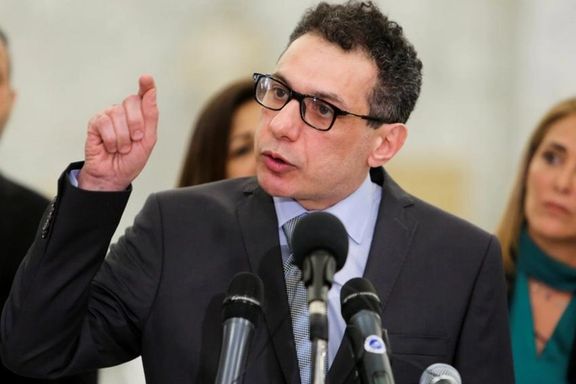
A former foreign detainee in Iran has told Iranian expats not to be tricked by the foreign minister claiming to guarantee their safety if they visit the country.
Nizar Zakka, a Lebanese citizen, and a US permanent resident spent four years in Iranian prisons on vague charges of espionage for the United States and was released in June 2019 after an appeal by Lebanese President Michelle Aoun.
He responded to a statement by Amir-Abdollahian saying that if expat Iranians want to visit the country, the foreign ministry can tell them if they have any legal issues and once cleared, they have nothing to fear about.
Zakka tweeted, “What are the guarantees, and from whom? You? What about foreigners? You were at the foreign ministry when your gov invited and kidnapped me.”
Zakkawas invited to Iran in 2016 by a top official of former president Hassan Rouhani’s government, but once he was arrested and jailed by the Revolutionary Guard the official said there was complete lack of coordination between the government and security forces.
Iran has arrested many dual nationals who have visited the country and used them as bargaining chips against Western countries, according to human rights organizations.
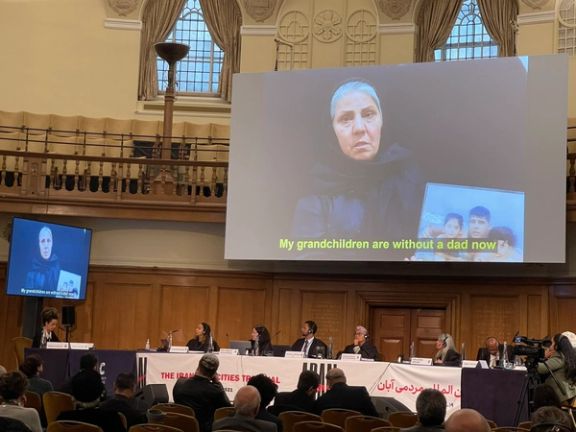
Some hardline media in Iran have called the Iran Atrocities Tribunal, held in London last week, a British stunt to shift attention from £400 million owed Iran.
Others say the United States or Zionists had set up a theatrical show, but it appears the event had enough impact on public opinion that Iran’s hardliners chose to react.
The Tribunal convened on the anniversary of the 2019 protests to “investigate atrocities” and “human rights violations by Iran” during the protests in Iran when hundreds of people were killed by security forces and more than 8,000 jailed.
"It appears that finding the payment of its debt to Iran challenging, Britain is trying to divert attention and wants to get the upper hand through media spectacles and allegedly independent international institutions," Raja News reported Monday.
Britain owes Iran £400 million (around $540 million) for tanks sold to Iran more than four decades ago but never delivered. Richard Ratcliffe, husband of Nazanin Zaghari-Ratcliffe who served four years in prison for ‘espionage’ says his wife, who is not allowed to leave Iran, has been taken ‘hostage’ to secure payment, which was ordered in 2001 by an international court.
Javan newspaper, which is affiliated to the Revolutionary Guards, saw the tribunal as a "puppet show" launched by "the White House media circle and escapees of the 2009 sedition." Some of the tribunals’ organizers left Iran following protests after the disputed 2009 presidential election, and among witnesses called was Masih Alinejad, a prominent US-based women’s rights defender and opponent of the Islamic Republic.
Javan said the US had organized anti-revolutionary "nuclei" to incite unrest and sedition months before protests in 2019.
Fars news agency, also affiliated to the IRGC, said the tribunal was a "ridiculous show" with the involvement of "infamous Zionists." It suggested Thursday that the organizers sought to generate excuses to the European Union and the US to impose sanctions on Iran.
According to Iran Wire, a report was submitted in advance of the tribunal to the International Criminal Court, to which Iran, like the US, is not a party. The ‘verdict’ of the tribunal, held in London 10-14 November, will be symbolic.
Organizers have referred to "paramount evidence on grave human rights violations" in previous investigations by the United Nations Special Rapporteur on the Situation of Human Rights in Iran, the UN Secretary General, and organizations such as Amnesty International, Human Rights Watch, Justice for Iran, and Iran Human Rights.
Media affiliated with Iran’s hardliners have questioned the purpose of the tribunal and the extensive coverage from foreign Persian-language media, especially Iran International TV, which relayed proceedings live. "What is the theatrical show of Aban Tribunal in London supposed to achieve?” a journalist who reflects hardliner views, Kobra Asoupar tweeted Tuesday.
Asoupar wrote in her tweet that the tribunal sought Iran's condemnation, confiscation of its assets, intensification of sanctions and international pressure, and payment of compensation to plaintiffs "from the pockets of the Iranian people," presumably from frozen Iranian assets. She added that Alinejad "filled her pockets with Americans’ rewards," apparently a reference to her work for media outlets funded by the United States.